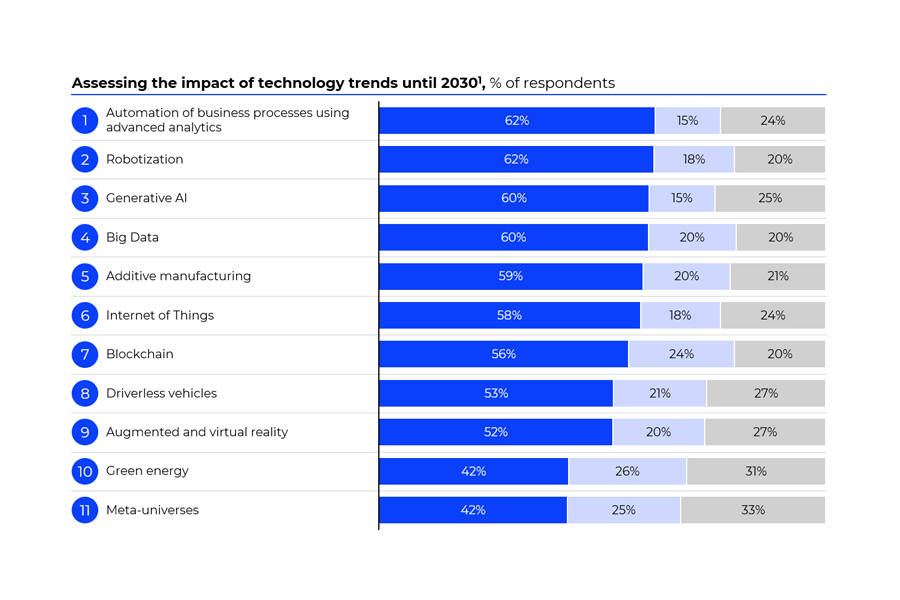Artificial intelligence and robotization will affect the labor market in Russia more than other technologies, according to job seekers. This is the takeaway from a survey of 700 respondents from companies across a range of industries and sizes conducted by experts from Yakov & Partners and hh.ru.
Survey participants were asked to assess the impact of 11 most important technologies. According to Russian respondents, the top five technologies in terms of their impact on the labor market include business process automation using advanced analytics, robotization, generative artificial intelligence, big data, and additive manufacturing. Green energy and meta-universes ranked last – less than half of the respondents believe in their impact on jobs or productivity.
The authors of the study note that IT professionals are the least likely to believe in the importance of blockchain technology for the labor market, while they are most confident in the impact of the Internet of Things. Service sector employees are the most likely to emphasize the importance of generative artificial intelligence – they ranked this technology first compared to third place for all other respondents.
"Significantly, employees of large companies are one and a half times more likely to say that their organizations are already using new technologies. This is especially evident for big data, robotization and advanced analytics. But it is these technologies that have the greatest potential to boost labor productivity, and therefore may be best positioned to mitigate talent shortage in the market. It may be necessary both to raise awareness of the opportunities and improve the affordability of these technologies, including for medium and small businesses,"
In general, respondents are more likely to expect technology to create or retain jobs while improving labor productivity. Exceptions include business process automation and robotization, which a third of respondents expect to cause job losses, as well as driverless vehicles. On the other hand, respondents largely expect generative artificial intelligence to create new jobs or improve the productivity of existing jobs without layoffs (40% of respondents in total).
Manufacturing sector employees rank additive manufacturing as the top job creator (21%); generative AI comes in second (20%).
"According to respondents, low- and mid-skilled employees are more at risk of layoffs due to advances in technology. At the same time, less than a quarter of respondents believe that any of the trends will lead to layoffs of high-skilled employees. Such statistics perfectly reflect the public expectation that new technologies will benefit highly qualified people, and once again emphasize the need to learn and develop new skills that are in demand in the new reality,"




